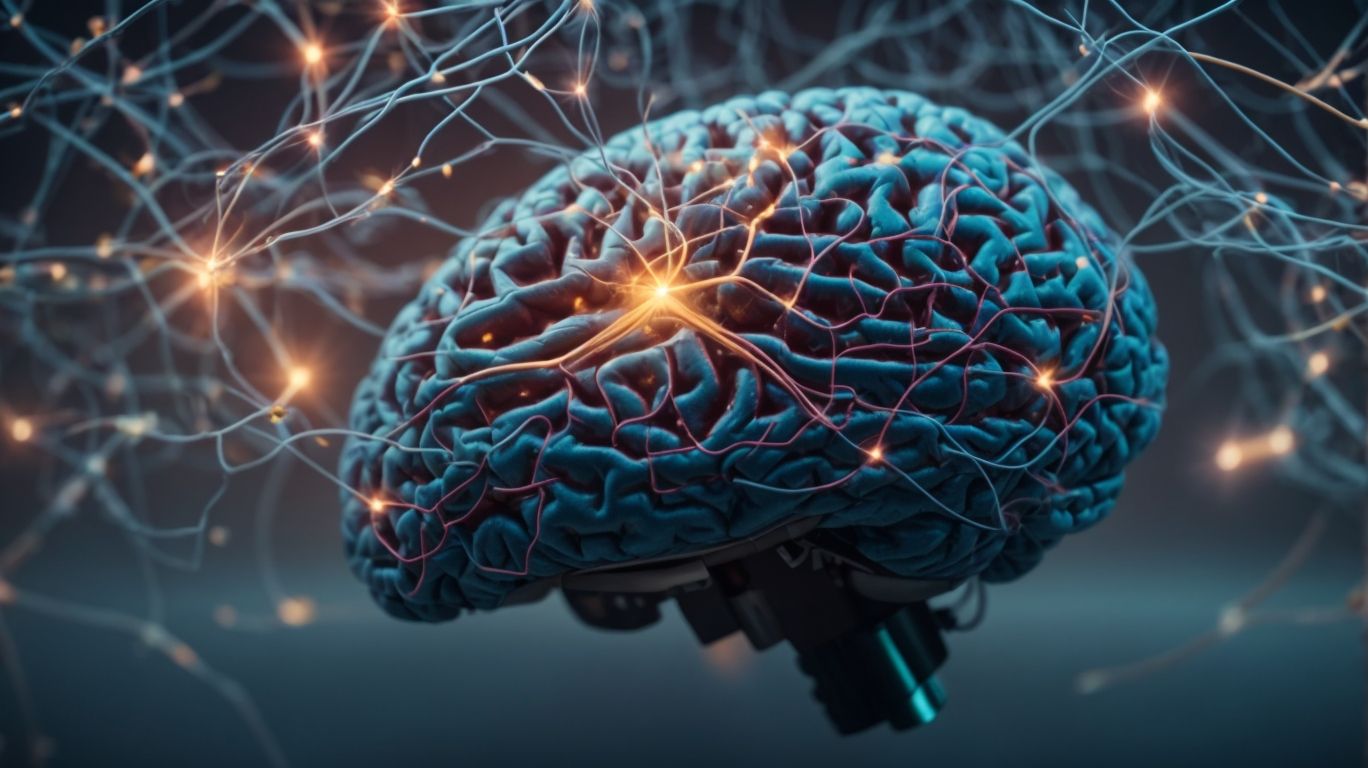Neuroscience is a fascinating field that explores the intricate workings of the brain and nervous system. But how does this relate to psychology?
In this article, we will delve into the different fields of neuroscience, the basic principles that guide its research, and the techniques used to study the brain. From brain imaging to genetics, we will uncover the applications of neuroscience in understanding brain functioning, studying mental disorders, and improving treatment approaches in psychology.
Join us as we explore the ethical considerations in neuroscience research and how this field will continue to impact psychology in the future.
Contents
- 1 What is Neuroscience?
- 2 How Does Neuroscience Relate to Psychology?
- 3 What Are the Basic Principles of Neuroscience?
- 4 What Are the Techniques Used in Neuroscience?
- 5 What Are the Applications of Neuroscience in Psychology?
- 6 What Are the Ethical Considerations in Neuroscience Research?
- 7 How Can Neuroscience Continue to Impact Psychology in the Future?
- 8 Frequently Asked Questions
- 8.1 What is the importance of neuroscience in psychology?
- 8.2 How does neuroscience contribute to the field of psychology?
- 8.3 Can neuroscience improve our understanding and treatment of mental health disorders?
- 8.4 Why is it important for psychologists to have a basic understanding of neuroscience?
- 8.5 What are some current advancements in neuroscience that are impacting the field of psychology?
- 8.6 How can incorporating neuroscience into psychology benefit individuals?
What is Neuroscience?
Neuroscience is a multidisciplinary field that encompasses the study of the brain, nervous system, cognitive functions, and the intricate network of neurons that underlie various mental processes.
Within the realm of neuroscience, researchers delve into brain structure, examining the complexities of the cerebral cortex, limbic system, and brainstem. They explore how different regions of the brain, such as the frontal lobe or hippocampus, play crucial roles in memory retention, decision-making, and emotional regulation.
Moreover, neuroscience focuses on studying neural pathways, investigating how electrical impulses travel through the brain and spinal cord to facilitate communication between cells. Understanding these intricate connections helps decipher how behaviors, thoughts, and emotions are orchestrated within the brain’s neural framework.
How Does Neuroscience Relate to Psychology?
Neuroscience and psychology intersect in exploring the relationship between the brain, cognitive functions, and mental processes, shedding light on how neural mechanisms influence behavior and thought.
This interdisciplinary connection between neuroscience and psychology delves into the intricacies of brain structures and functions that underpin human behavior and cognition.
Neuroscientists study the physical aspects of the brain, such as neurons, neurotransmitters, and brain circuits, while psychologists delve into the mental aspects, including perception, emotions, memory, and decision-making.
By understanding the biological mechanisms that govern psychological processes, researchers can unravel the complexities of mental disorders, addiction, learning, and development.
This collaborative approach not only enhances our comprehension of the mind-body connection but also provides valuable insights into therapeutic interventions and cognitive enhancement techniques.
What are the Different Fields of Neuroscience?
Neuroscience comprises various specialized fields, including molecular neuroscience, cellular neuroscience, and systems neuroscience, each focusing on distinct aspects of brain structures and functions.
Molecular neuroscience delves deep into the study of molecules and how they influence neural processes, providing insights into the chemical interactions within the brain.
Cellular neuroscience, on the other hand, zooms in further to examine the structure and function of individual neurons and their connections, unraveling the complex network that forms the basis of brain activity.
Systems neuroscience takes a broader view, analyzing the interactions between different brain regions to understand how they work together to produce various cognitive functions and behaviors.
What Are the Basic Principles of Neuroscience?
The fundamental principles of neuroscience revolve around the structure and function of the brain, the communication between neurons at synapses, and the integration of cognitive neuroscience to understand mental processes.
Neuroscientists delve deep into the intricate anatomy of the brain, studying the organization of neurons, glial cells, and various regions such as the cortex, cerebellum, and limbic system. Neuronal communication, occurring through electrical and chemical signals across synapses, forms the basis of information processing in the brain. This dynamic network allows for complex behaviors, memories, and emotions to arise from neural activities.
The field of cognitive neuroscience combines psychological principles with neuroscientific techniques to explore how specific brain functions relate to higher-order cognitive processes. By employing imaging technologies like fMRI and EEG, researchers can decipher the neural correlates of perception, attention, memory, and decision-making, providing valuable insights into the mechanisms underlying human cognition.
What Are the Techniques Used in Neuroscience?
Neuroscience employs a range of advanced techniques such as brain imaging, fMRI scans, and the study of action potentials and neurotransmitters to delve into the intricacies of brain function and neural communication.
Among these methodologies, brain imaging technologies play a pivotal role in visualizing brain activity and structure. Functional magnetic resonance imaging (fMRI) stands out as a prominent tool, enabling researchers to observe changes in blood flow associated with neuronal activity. This non-invasive technique has revolutionized our understanding of cognitive processes and emotions, providing valuable insights into disorders like schizophrenia and depression.
The study of neurotransmission and action potentials offers a deeper insight into the communication between neurons. Neurotransmitters, such as dopamine and serotonin, regulate various brain functions, influencing mood, cognition, and behavior. Understanding these biological processes is essential for uncovering the mechanisms underlying neurological disorders and developing effective treatments.
Brain Imaging
Brain imaging techniques play a pivotal role in neuroscience, allowing researchers to visualize and map brain activity, structures, and connectivity patterns with remarkable precision.
These advanced technologies provide invaluable insights into the intricacies of the human brain, aiding in the diagnosis and treatment of neurological disorders. Functional magnetic resonance imaging (fMRI) measures blood flow changes, indicating areas of the brain activated during specific tasks or stimuli, shedding light on cognitive processes and behavior. Similarly, diffusion tensor imaging (DTI) tracks the movement of water molecules to map brain connectivity and white matter tracts, crucial for understanding neural communication. Incorporating these techniques in research has revolutionized the field of neuroscience, offering new perspectives on brain functions and mechanisms.
Electrophysiology
Electrophysiology involves the study of electrical properties in neurons, providing insights into neuronal communication, action potentials, and the coordination of neural networks.
By recording the electrical activity of individual neurons or groups of neurons, electrophysiology allows researchers to analyze the intricate mechanisms involved in the generation and propagation of electrical signals within the nervous system. This detailed investigation extends to studying the interactions between neurons, the modulation of synaptic strength, and the synchronization of neuronal firing patterns, all of which are essential for understanding brain function at a cellular and network level.
Neurochemistry
Neurochemistry investigates the diverse neurochemicals and neurotransmitters that modulate brain functions, behavior, and cognitive processes, offering insights into the molecular basis of neural communication.
The intricate interplay of neurochemicals, such as serotonin, dopamine, and glutamate, within the brain plays a crucial role in regulating various aspects of mental and emotional well-being. Serotonin, often referred to as the ‘feel-good’ neurotransmitter, is involved in mood regulation and emotional stability; dopamine, known for its role in reward and pleasure systems, influences motivation and learning processes, while glutamate, the most abundant excitatory neurotransmitter, is essential for synaptic plasticity and cognition.
By modulating neurotransmission, these neurochemicals impact neural signaling, synaptic connections, and overall brain function, ultimately shaping our perceptions, thoughts, and behaviors. Understanding the effects of these neurochemicals on cognitive processes provides valuable insights into disorders such as depression, anxiety, and addiction, allowing researchers to develop targeted treatments that can restore neurochemical balance and improve mental health.
Genetics
Genetics plays a crucial role in neuroscience by unraveling the genetic underpinnings of brain development, neural plasticity, and susceptibility to neurological disorders.
Through intricate study and advanced research techniques, scientists have identified numerous genetic variants associated with differences in brain structure, such as the size of specific brain regions and connectivity patterns between different regions.
Genetics plays a pivotal role in influencing neurological conditions, including autism spectrum disorders, schizophrenia, and Alzheimer’s disease, with certain genetic mutations significantly increasing the risk of developing these conditions.
The heritability of cognitive functions, like memory, attention, and processing speed, also showcases the influence of genetics in shaping individual differences in cognitive abilities.
What Are the Applications of Neuroscience in Psychology?
Neuroscience informs psychology by elucidating brain functioning, exploring mechanisms underlying mental disorders, and guiding the development of innovative treatment approaches for psychological conditions.
Understanding the intricate connections between neural pathways and behavioral patterns opens up new horizons in psychological research. By diving into cognitive processes and emotional responses at the neurological level, psychologists can decode the underlying mechanisms of various mental health issues.
- Neuroimaging techniques like fMRI and EEG offer invaluable insights into brain activity associated with different psychological states.
- The knowledge gained from neuroscience paves the way for personalized interventions tailored to address specific neurological imbalances contributing to psychological disorders.
Understanding Brain Functioning
Neuroscience aids in comprehending brain functioning by investigating cognitive processes, neural mechanisms, and the intricate interplay between brain regions that govern behavior and cognition.
This field delves deep into exploring how sensory information is processed, how memories are formed and recalled, and how emotions are regulated. Understanding the structural and functional organization of the brain allows researchers to map out the networks responsible for attention, learning, decision-making, and more complex cognitive functions. Neuroplasticity, the brain’s ability to reorganize itself by forming new neural connections, plays a crucial role in shaping individual experiences and behaviors.
Studying Mental Disorders
Neuroscience plays a pivotal role in studying mental disorders, elucidating the neural basis of psychiatric conditions, and providing insights into effective diagnostic and therapeutic strategies.
By employing advanced technologies such as functional magnetic resonance imaging (fMRI) and electroencephalography (EEG), researchers can delve deep into the neural correlates of various mental illnesses. These techniques help map brain activity in individuals with conditions like depression, schizophrenia, and anxiety disorders, offering valuable data on how these disorders manifest at the neural level.
Through studying the intricate connections within the brain, scientists can identify specific brain regions and circuits associated with different psychiatric disorders. This knowledge aids in the development of targeted interventions that can modulate brain activity and restore normal functioning in individuals struggling with these conditions.
Improving Treatment Approaches
Neuroscience-driven treatment approaches in psychology leverage brain insights to enhance therapeutic strategies, personalize interventions, and improve outcomes for individuals with psychological conditions.
By diving into the intricate workings of the brain, psychologists can tailor treatment plans to suit the specific needs of each patient, leading to more effective results. With advancements in brain-based therapies, such as neurofeedback and cognitive training programs, individuals can undergo targeted interventions that address the root causes of their psychological issues. Integrating neuroscientific findings into psychological treatments enables clinicians to develop evidence-based interventions that are grounded in the latest research on brain function and mental health.
What Are the Ethical Considerations in Neuroscience Research?
Neuroscience research grapples with ethical considerations regarding participant consent, data privacy, and the responsible use of emerging technologies to ensure the welfare and rights of individuals involved in studies.
One of the fundamental ethical dilemmas researchers face is the delicate balance between advancing scientific knowledge and respecting the autonomy of human subjects. This balance is particularly critical in studies involving vulnerable populations, where participant rights must be safeguarded at all costs.
Stakeholders in neuroscience research must navigate intricate privacy concerns given the sensitive nature of neurological data, ensuring that confidentiality is upheld while extracting valuable insights. The ethical use of cutting-edge tools like brain imaging techniques necessitates thorough consideration of the potential impact on both individual participants and society as a whole.
How Can Neuroscience Continue to Impact Psychology in the Future?
The future promises further integration of neuroscience and psychology, with advancements in brain imaging, neurotechnology, and computational models expected to revolutionize our understanding of behavior, cognition, and mental health.
As these technological innovations continue to evolve, they hold the potential to unlock previously inaccessible realms of the human mind, offering unparalleled insights into the intricate mechanisms underlying thought processes and emotional responses.
Interdisciplinary collaborations between neuroscientists and psychologists are already paving the way for groundbreaking discoveries that have the potential to reshape therapeutic interventions, diagnostic practices, and even societal attitudes towards mental well-being.
The burgeoning field of neuropsychology stands at the forefront of this exciting transformation, where novel research methodologies and cutting-edge tools are give the power toing researchers to address complex questions about the brain-behavior relationship with unprecedented clarity and precision.
Frequently Asked Questions
What is the importance of neuroscience in psychology?
Neuroscience is vital in understanding the biological processes that underlie our thoughts, behaviors, and emotions. It helps us to better understand the complex workings of the brain and how they influence our psychological functioning.
How does neuroscience contribute to the field of psychology?
Neuroscience provides valuable insights into the biological basis of psychological processes, allowing psychologists to develop more accurate theories and effective interventions for mental health disorders.
Can neuroscience improve our understanding and treatment of mental health disorders?
Yes, by using advanced technologies and techniques such as brain imaging, neuroscience has greatly enhanced our understanding of mental health disorders and has led to the development of more effective treatments.
Why is it important for psychologists to have a basic understanding of neuroscience?
A basic understanding of neuroscience can help psychologists make more informed and evidence-based decisions in their practice. It also allows for a more comprehensive approach to treating mental health issues.
What are some current advancements in neuroscience that are impacting the field of psychology?
Advances in areas such as genetics, neuroimaging, and psychopharmacology have greatly expanded our understanding of the brain and its role in psychological processes. These advancements have also led to more personalized and effective treatments for mental health disorders.
How can incorporating neuroscience into psychology benefit individuals?
By understanding the biological mechanisms behind psychological processes, individuals can gain a better understanding of their own thoughts, emotions, and behaviors. This can lead to improved self-awareness and the ability to make positive changes in one’s life.




